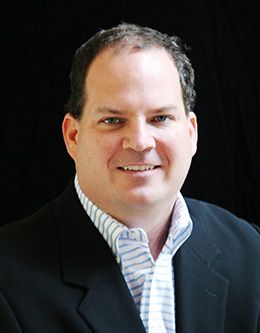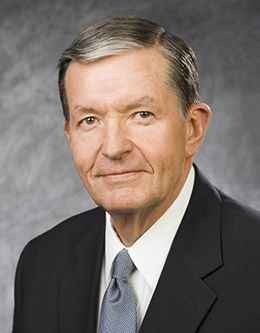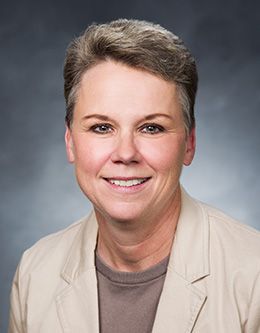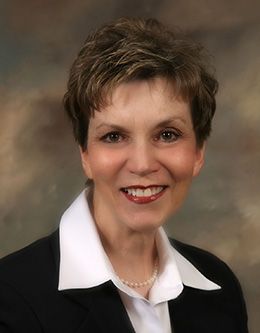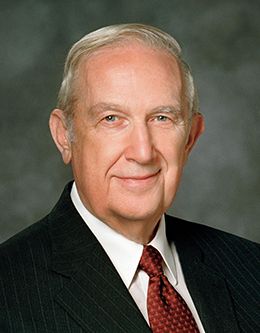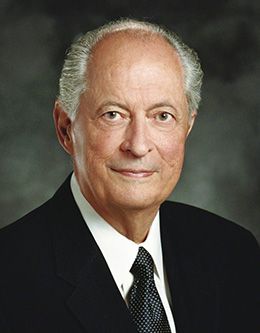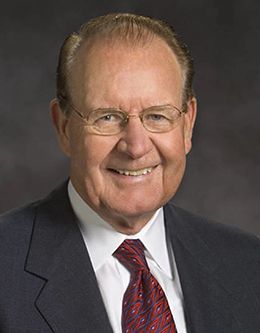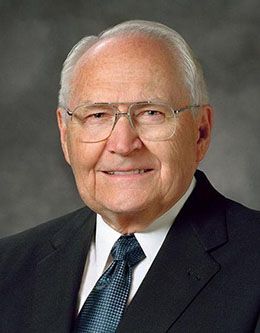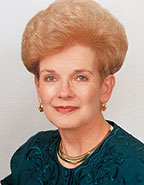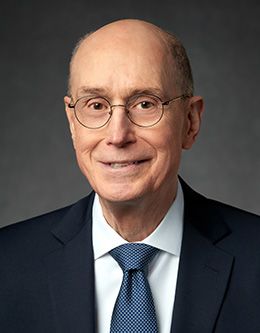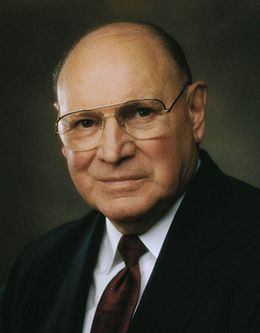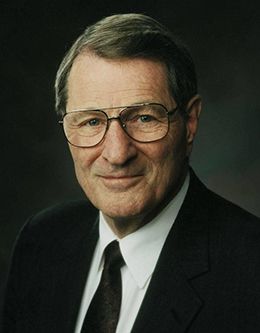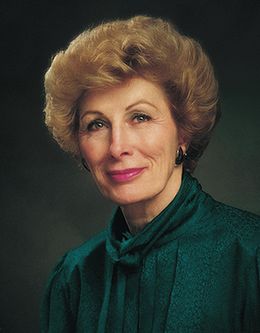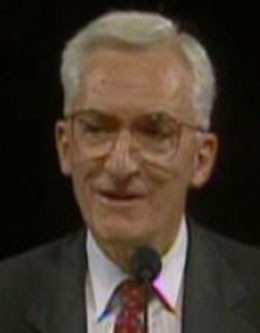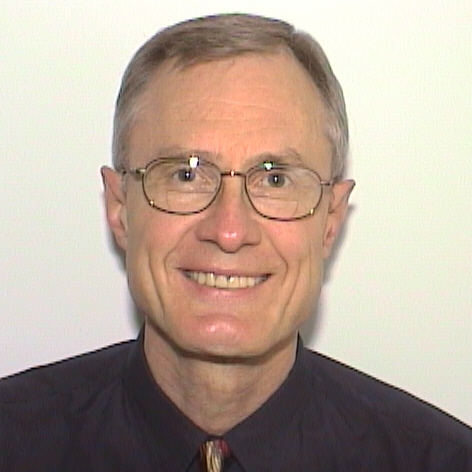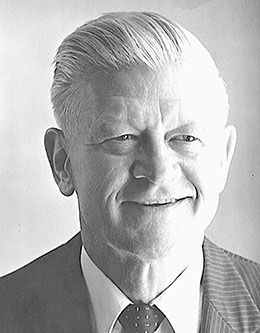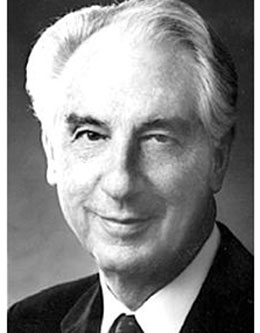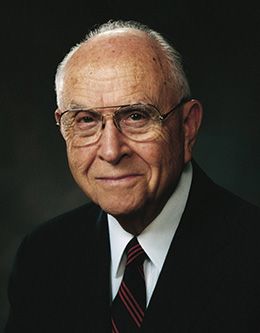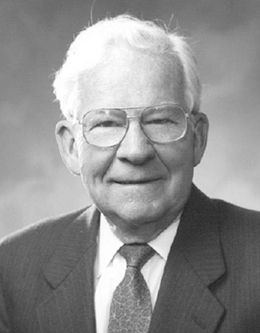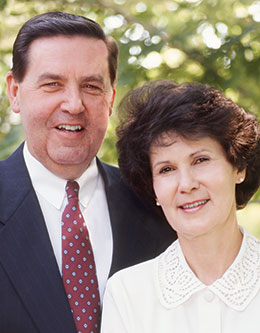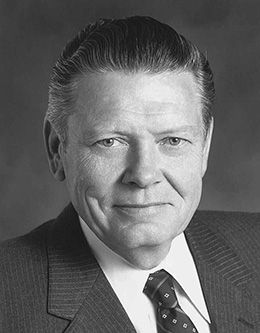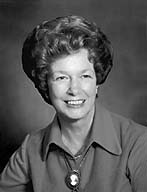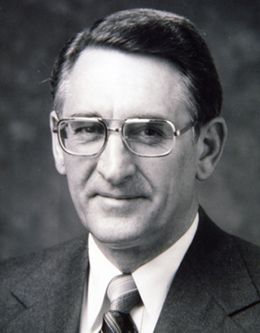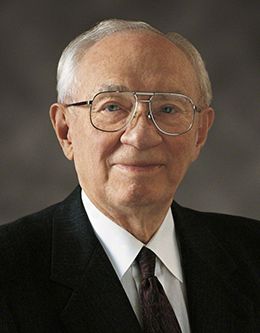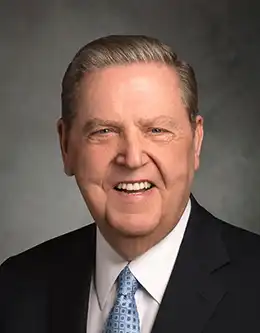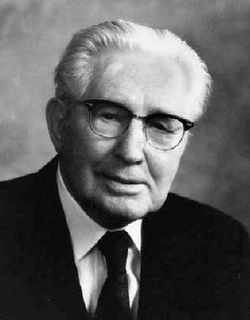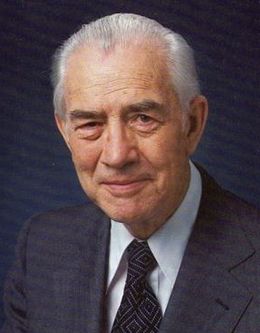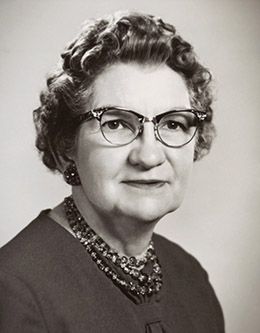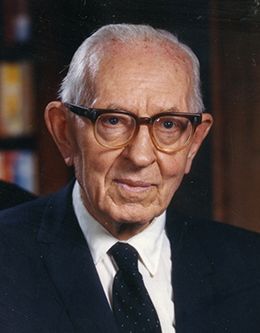
On a Film and a Prayer: The Stories of Our Lives
When he discovered the power of stories, Michael Flaherty used his love of teaching and of God to build a film company devoted to spreading good.
High Expectations
President Samuelson reminds the diverse graduating class of August 2004 that the expectations for them are high, as their capacity and blessings are great.
“In This Life I Shall Have Joy” (Moses 5:10)
The text for this speech is unavailable. Please see our FAQ page for more information.
“In This Life I Shall Have Joy”
Elaine S. Marshall reminds us that because of the Atonement, we can choose to have joy in this life, no matter how difficult our trials may be.
As You Go Forth
Establish a set of guiding principles for your life, and never compromise them. Make no exception to them. Difficulties in life begin when small deviations from true standards are made to justify a quick move to a greater accomplishment.
Living Life by Axioms
Elder Hales offers ten axioms to 2003 graduates for living a successful, meaningful life. Each axiom is a valuable lesson temporally and spiritually.
“Put Away Childish Things”
The responsibilities of adulthood come at the price of leaving behind some aspects of youth. As we put away childish things, we prepare for the future.
Finding a Refuge from the Storm
Our refuge from the storm must be based on a foundation of the gospel of our Lord and Savior, which is to be understood, lived, and taught.
Tapestry of Life
Life is like a challenging but colorful tapestry with many different stages. Christ can make the years of our tapestry rich and beautiful.
A Life Founded in Light and Truth
The simple principles of agency, opposition, and obedience can help us teach our youth and fill our lives, and theirs, with ever-growing light and truth.
Four Keys to a Happy Life
The text for this speech is unavailable. Please see our FAQ page for more information.
Lessons Learned in the Journey of Life
Elder Joseph B. Wirthlin shares lessons and wisdom learned from enjoying the path of lifelong discipleship, including stories from his time as a missionary.
Sharing Insights from My Life
Neal A. Maxwell shares profound insights about such topics as regret and aspiration, divine blessings and human potential, and praise and criticism.
“Never Take No Cutoffs” or “You Have Nothing to Fear From the Journey”
We can learn from the mistakes of the Donner party's failed trek West and glean principles that assist us on our eternal journey back to Heavenly Father.
Live to Make Good Memories
George I. Cannon encourages students to remember the importance of living to make good memories that will bless them their whole lives.
“Therefore Choose Life”
Using the precious power to choose, we must choose to live by following the right rules, choosing discipline, and choosing the Master.
Making Memories
Our memories help shape us as we listen, learn, help, and serve others, and we will carry our memories with us through life.
Cycle of Life
We all experience life's peaks and valleys—moments of spiritual highs and lows. How can we remain at the top rather than slide back into spiritual darkness?
The Streams of Your Life
Our life is like a stream—we have been fed by many other streams that have influenced us. Are you heading toward flowing into the fountain of living water?
Good Judgment and Common Sense
To succeed in life, we need the kind of good judgement and common sense that will compel us to keep learning, keep doing our homework, and keep caring.
What Is Your Personal Ranking?
There are specific teachings and friends we should remember who are high in their personal ranking because of the values they exemplify.
Whatever We Ought to Be, We Better Be Becoming
Sharlene Wells, daughter of Robert E. Wells, speaks with her parents at a fireside as reigning Miss America, where she shares her story of becoming.
“In the Thick of Life’s Urgencies”
Honesty, education, sacrifice, and faith are among the unique characteristics that make up Zion–and we can make Zion right here at BYU.
“What Seek Ye?”
"What seek ye?" Heavenly Father wants us to seek after the very best and stretch ourselves to do that which is for our eternal good.
Seek Higher Flight Levels
Just as airplanes are safer when flying above inclement weather, so are we safer when we seek higher “flight levels” by being obedient to the commandments.
“Them That Love Him”
As members of Christ’s church, we should be among them that love Him by following His instructions and remembering our worth.
Would You Sell?
"If you could sell me ten years of your life, would you sell?" We must never take the time we have on this earth for granted.
If I Were You, What Would I Do?
Students are encouraged to take advantage of their opportunities at BYU with a lighthearted poem, "If I Were You, What Would I Do?"
In This Time of Complexity and Challenge
In this increasingly secular world, faith in God will bless you through. Hold on to Him through the complexity and challenges of life.
For Times of Trouble
Trouble will come, but discouragement doesn't have to. If we prepare ourselves through patient and faithful discipleship, we will get through.
Baccalaureate Address
In this Baccalaureate address, Hugh B. Brown encourages graduates to get to know themselves—their talents, their passions, and their divine heritage.
A Proper Orientation on the Threshold of Life
You are just now on the threshold of life, with many important decisions to make. Make them wisely and in keeping with the teachings of the gospel.
Youth’s Responsibility for Purposeful and Influential Living
The text for this speech is unavailable. Please see our FAQ page for more information.
Your Eternal Flight
Your life's journey is like a flight in an airplane—you need to pay careful attention to your instruments, and keep your sight fixed on your destination.
It Is Good to Live Now
The text for this speech is unavailable. Please see our FAQ page for more information.
The Purpose of Mortal Life
Though we may face trial, temptation, and distraction, let us not lose focus: the purpose of mortal life is to prepare for eternal life.
Learning to Live
Women must focus on home-making and humanitarian activities by prioritizing people over material things and serving those around them.


